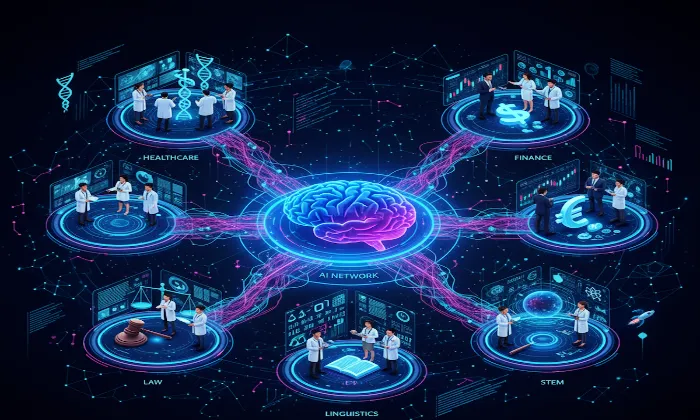How do medical datasets contribute to global health equity?
Data Analytics
Healthcare
Health Equity
Medical datasets are pivotal in the push toward global health equity, acting as essential tools that enhance healthcare delivery, access, and quality. By leveraging authentic data from doctor-patient interactions, these datasets not only advance AI capabilities but also ensure healthcare innovations are inclusive and applicable across various populations.
Understanding Medical Datasets
Medical datasets are curated collections of health-related information, often obtained through clinical trials, surveys, or recorded interactions between healthcare providers and patients. For example, the Doctor-Patient Conversation Speech Dataset includes unscripted dialogues that reflect real clinical scenarios. Such datasets capture the nuances of human interaction, including empathy and clinical reasoning, which are often absent in structured data.
Key Contributions of Medical Datasets to Health Equity
1.Enhancing AI Development:
- Medical datasets train AI systems to understand and interpret natural language, improving communication between patients and healthcare providers.
- They simulate patient interactions across various languages and specialties, helping build AI tools that are culturally competent and linguistically adept, crucial for patient engagement in underserved communities.
2.Supporting Evidence-Based Healthcare:
- These datasets provide healthcare professionals with data-driven insights for informed decision-making.
- By analyzing patient interaction trends, disparities in treatment outcomes can be identified, leading to tailored interventions for diverse populations.
3.Promoting Multilingual and Multicultural Representation:
- To support global health equity, medical datasets incorporate multiple languages and dialects, ensuring AI models function effectively in diverse linguistic contexts.
- This diversity enhances AI usability and fosters an inclusive healthcare approach, addressing linguistic and cultural barriers in care delivery.
Challenges and Considerations in Using Medical Datasets
While beneficial, utilizing medical datasets comes with challenges:
1.Quality Assurance
- Ensuring data quality and reliability is crucial; poorly annotated datasets can lead to biased AI predictions, exacerbating health disparities.
- Robust quality assurance processes, including expert reviews, are essential to maintain dataset accuracy and relevance.
2.Ethical Considerations
- Data collection must adhere to privacy regulations, with informed consent and confidentiality being paramount.
- FutureBeeAI's approach involves simulated conversations that replicate real-world scenarios without using actual patient data, ensuring ethical compliance.
Real-World Impact: Doctor-Patient Conversation Speech Dataset
The Doctor-Patient Conversation Speech Dataset exemplifies the impact of medical datasets on health equity:
1.Simulated Yet Realistic Scenarios
- Conversations mimic real clinical interactions, capturing linguistic, emotional, and contextual realism necessary for training healthcare AI systems.
- Multilingual coverage across 40–50 languages ensures that AI systems can understand and respond accurately to diverse communication patterns.
2.Ethical and Compliant Design
- The dataset maintains authenticity without compromising privacy, adhering to global ethical standards.
- This allows for the development of AI systems that can improve healthcare accessibility and quality without legal or ethical risks.
Conclusion: A Path to Equitable Healthcare
Medical datasets are vital in promoting global health equity by enabling AI systems to cater to diverse patient needs. FutureBeeAI's expertise in ethically collecting and annotating healthcare data ensures these datasets are reliable and impactful. By committing to rigorous data practices and prioritizing ethical considerations, organizations can leverage medical datasets to drive equitable healthcare solutions.
FAQs
Q. How do medical datasets improve patient outcomes?
Medical datasets help personalize treatment plans by providing healthcare providers with data-driven insights, allowing for tailored interventions that meet individual patient needs.
Q. What role does diversity play in medical datasets?
Diversity ensures that AI models are trained on varied patient experiences, leading to more accurate and equitable healthcare solutions, addressing health disparities effectively.
What Else Do People Ask?
Related AI Articles
Browse Matching Datasets
Acquiring high-quality AI datasets has never been easier!!!
Get in touch with our AI data expert now!








